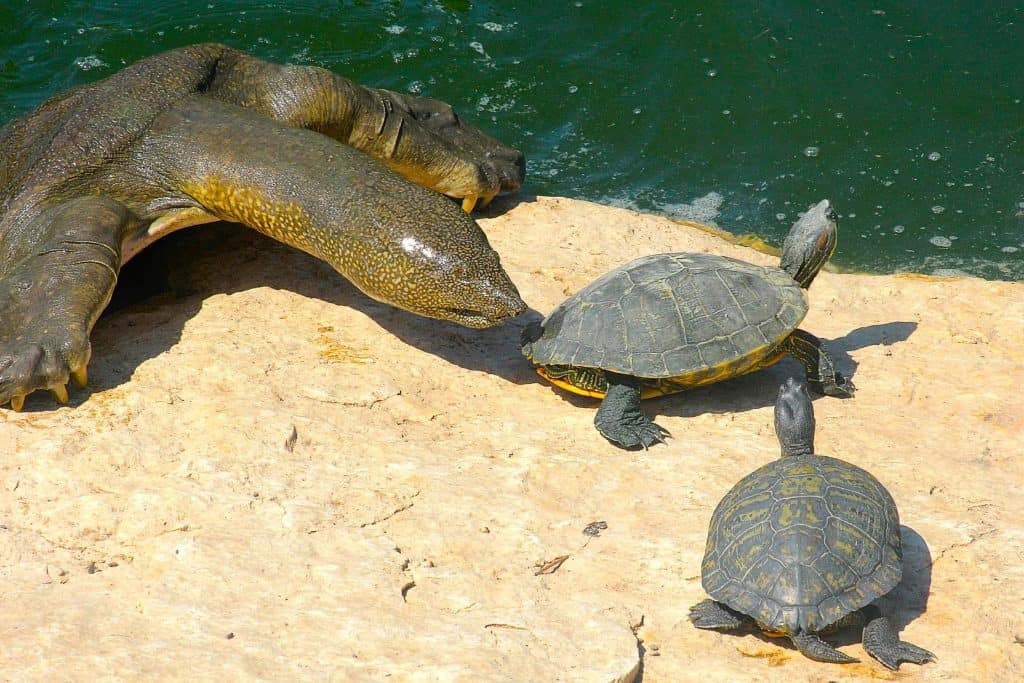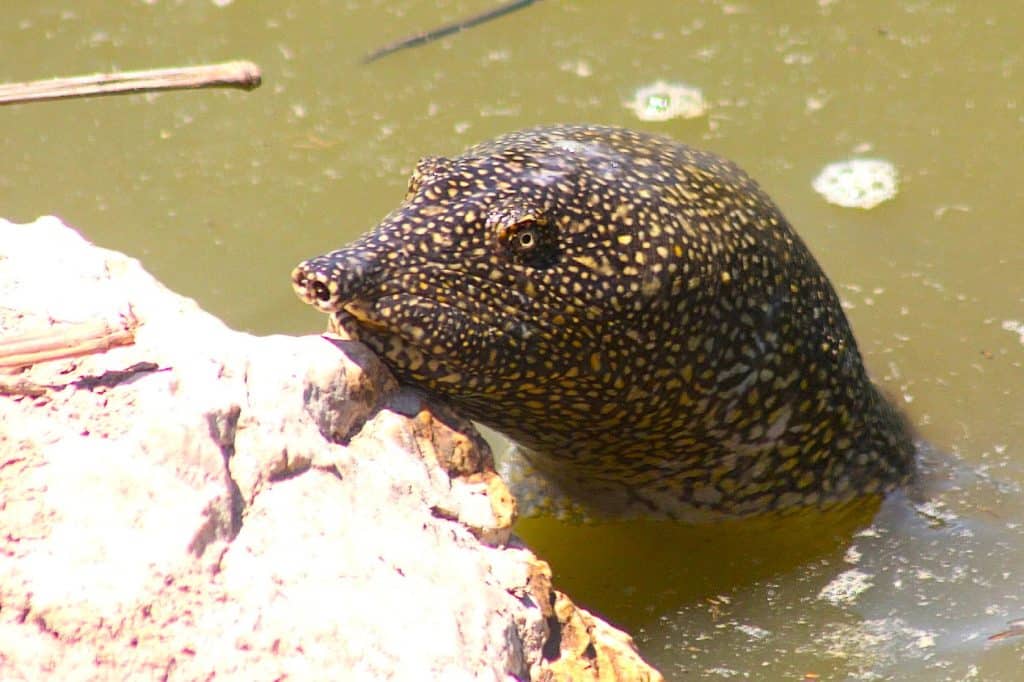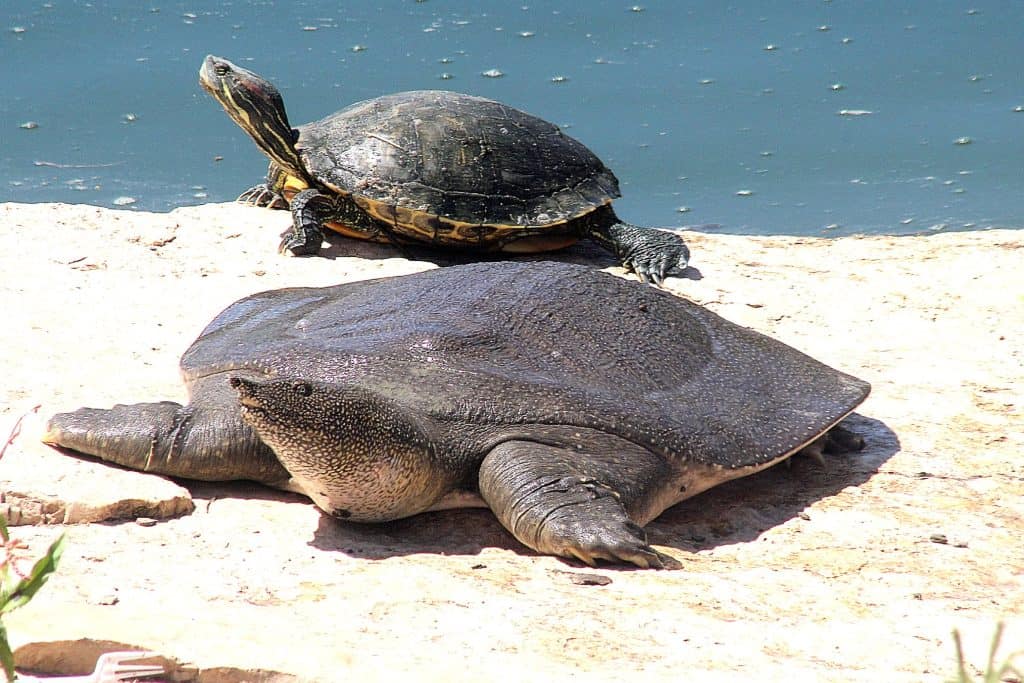The softshell Nile turtle, also known as the African softshell turtle, is a species of freshwater turtle that can be found in various parts of Africa, including Egypt and Israel. In Israel, this species of turtle is commonly found along the banks of rivers pouring to the Med Sea.

Credit: Julian Alper, CC BY-SA 4.0, via Wikimedia Commons
First, the Softshell Nile turtles are relatively giant turtles with a carapace (shell) length of up to 60 cm (23 inches) and a weight of up to 20 kg (44 pounds). Furthermore, they are characterized by their soft, leathery shells, which lack the rigid, bony plates that most other turtle species have. So this soft shell makes them more vulnerable to predators, agile in the water, and better adapted for burrowing in soft sand.
Nile SoftShell Turtle In Israel
Moreover, In Israel, softshell Nile turtles are most commonly found in shallow, slow-moving freshwater bodies such as rivers, streams, and man-made ponds. They are also found in smaller tributaries that flow into the Dead Sea. These turtles are opportunistic feeders and will eat various prey, including fish, crustaceans, insects, and even carrion. Softshell Nile turtles are considered a vulnerable species in Israel, primarily due to habitat loss and degradation caused by human activities such as agriculture, urbanization, and water development. They are also hunted for meat and the pet trade, threatening survival.

Credit: Julian Alper, CC BY-SA 4.0, via Wikimedia Commons
Last, Efforts are underway to protect and conserve Israel’s softshell Nile turtle population. These efforts include habitat restoration, monitoring of turtle populations, and education and outreach programs to raise awareness about the importance of protecting this species. So if you have kids and are touring Israel, you can take them to the Turtles rescue center. Here is a link to their website.

Credit: Julian Alper, CC BY-SA 4.0, via Wikimedia Commons
In conclusion, the African softshell turtle is an exciting and unique turtle found in Israel, with a soft, leathery shell and a range of fascinating behaviors and adaptations. While they face significant threats from human activities, ongoing conservation efforts provide hope for their continued survival in the wild.

